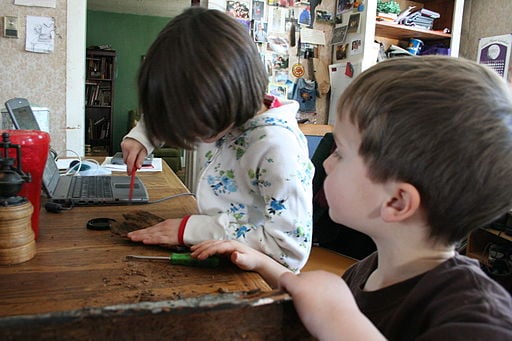Still thinking about race. (See Day 1 and Day 2.)
When I was first teaching, I had a brilliant student named Milky. She was brilliant in both the sense that she lit up a room and that she mastered academic challenges quickly. So when Milky told me that she was going to be away from school for a few months and wanted me to give her some independent study work, I quickly said yes.
We agreed that she and I would both read four novels that I had been wanting to read anyway and that she would write one essay about each and one that compared them. They were each about a strong female character or characters, and each character was non-White. I don’t remember them all now, but I know that one of them was The Joy Luck Club and one of them was In the Time of the Butterflies. I read them all the week before Milky returned and looked forward to reading her essays.
She beamed as she handed them in. “The books were awesome, Tara. I loved this project.”
I sat down to read her essays, and became increasingly distressed. The analysis was so rich, the insights so deep, that I began to suspect that Milky had not written them herself. There was no internet in those days, and I racked my brain trying to figure out where she could have picked up these essays.
The next day, when we met to discuss them, she again blew me away. Milky saw so much more in these books than I had. I started to take notes as she talked. I wanted to remember what she said so I could reflect on it later.
I had been wrong about Milky and her abilities. So wrong. How could I have so grossly underestimated one my brightest students?
There was only one explanation. It was that Milky was Black.
I cried and cried as I realized that, once again, I had more racist crap in me to dredge up and exorcise. It hadn’t occurred to me that a poor Black girl could write a better essay than I could have.
As a teenager, I assumed I wasn’t racist. I couldn’t be a racist. My first three boyfriends were Black. My two best girlfriends were Black. I knew real racists, I thought. They were gross, and I wasn’t one of them.
Then I started teaching, and over time I realized that I had plenty of racist attitudes and practices. Each time I came up against one, it was painful. Painful to realize that I was not who I thought I was. Painful to realize how much harm I could do and and did do, to young people and families I cared about deeply.
Remembering all of this has me thinking again about racial identity development for White people, and wondering if it will look different for the boys than it has for me. Will they wake up one day and realize that what they thought was supportive was actually patronizing? Will they unknowingly say something incredibly hurtful and wonder why I hadn’t taught them better?
Gratefully, the story doesn’t stop with Milky. Tune it tomorrow for more…











